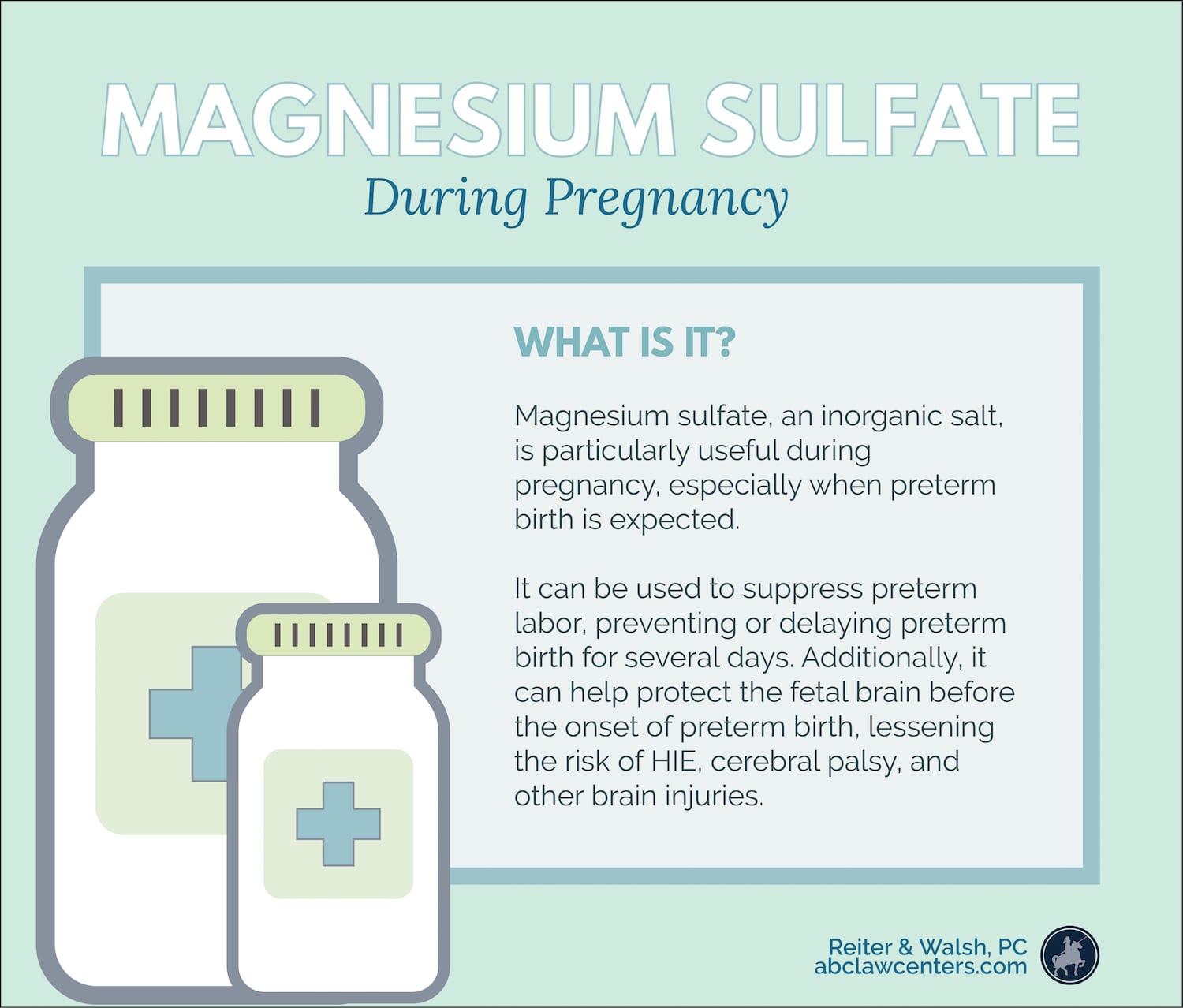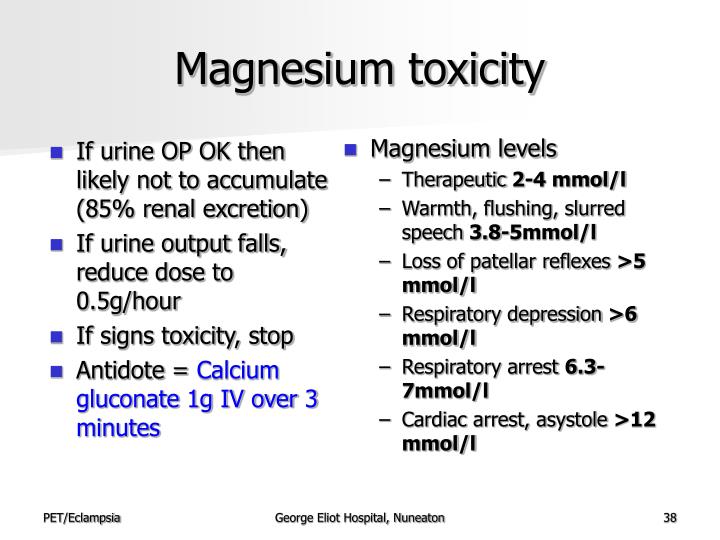
Magnesium is also present in some medications for stomach acid indigestion or heartburn. It can lead to lethargy, gastrointestinal symptoms, low blood pressure, and cardiac. However, the Office of Dietary Supplements notes that “very large doses of magnesium-containing laxatives and antacids (typically providing more than 5,000 mg/day magnesium) have been associated with magnesium toxicity.” Takeaway High magnesium levels (hypermagnesemia) can result from taking too many magnesium supplements. These come in various forms, including: magnesium oxide magnesium citrate magnesium chloride. Anticholinergic toxicity is common in the emergency department but rarely fatal.1 According to the 2015 annual American Association of Poison Control Centers (AAPCC) report, there were just under 14,000 exposures reported to poison control centers that year, none of which lead to mortality.

Instead, it’s flushed from the body before it has a chance to have much impact. Magnesium supplements are another source of magnesium.

Because of the laxative effect, you don’t absorb all of the magnesium. While these medications may have a higher amount of elemental magnesium, it normally isn’t dangerous. You’ll also find it in supplements and certain medications.įor example, magnesium is the active ingredient in some laxatives. Some specific foods that are high in magnesium include:īut food isn’t the only place you’ll find this mineral. Nuts, leafy greens, legumes, and whole grains are among the best sources. Digitalis is a chemical found in plants such as foxgloves and is used to produce digoxin, a drug used to treat cardiac arrhythmia and congestive heart failure. Magnesium is found in a variety of foods, especially those with lots of fiber. Magnesium (antidote): Magnesium is used as an antidote to digitalis toxicity, hypomagnesemia, or torsades de pointes, a heart rhythm disorder. in a woman who has preeclampsia who is being treated with magnesium who becomes apnea and areflexia. These dosages should only be taken with medical supervision. Acetylcysteine is an effective antidote to prevent or limit liver injury in patients with potentially toxic acetaminophen levels or evidence of liver injury. Magnesium may be prescribed to prevent migraine headaches, with a daily dosage of more than 350 mg a day. The office of Dietary supplements notes that “too much magnesium from food does not pose a health risk in healthy individuals because the kidneys eliminate excess amounts in the urine.” It also notes that “high doses of magnesium from dietary supplements or medications often result in diarrhea that can be accompanied by nausea and abdominal cramping.” Supplemental magnesium is different from magnesium naturally occurring in the foods you eat.

If you take supplemental magnesium, the most an adult should ingest is 350 mg daily. Pregnant women are recommended to consume a higher dose than women who aren’t pregnant. Healthy adult women should consume 310 to 320 mg daily. Find specific details on this topic and related topics from. It’s important for:Īccording to the National Institutes of Health’s Office of Dietary Supplements, healthy adult men should generally consume 400 to 420 milligrams (mg) of magnesium daily. Learn about the veterinary topic of Phosphide (Zinc, Magnesium, Aluminum) Poisoning in Animals. Magnesium serves many functions in the human body.


 0 kommentar(er)
0 kommentar(er)
